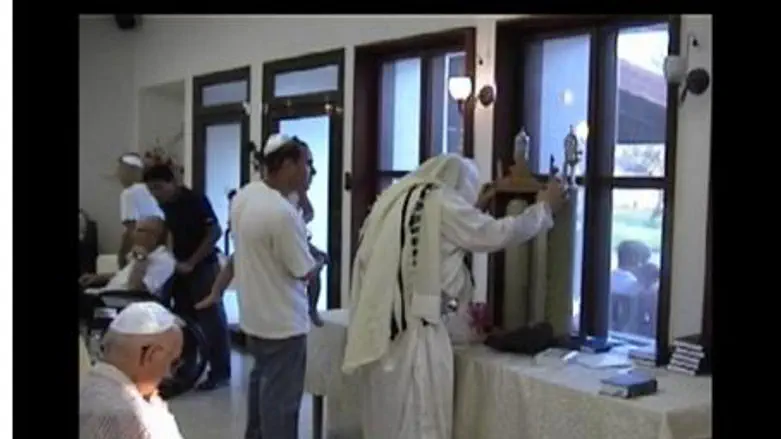
The large majority of Israelis who fast on Yom Kippur will be hit with a “triple whammy” this year: The weather, the calendar, and the clock are conspiring to make this year's fast one of the most challenging in years.
Yom Kippur begins Friday night and extends through Saturday night, and according to forecasters, temperatures on Friday and Saturday will hit the mid- to upper-thirties Celsius (close to 100 degrees Fahrenheit). The heat wave will be one of the hottest for the year, and the Yom Kippur thermometer will reach heights not seen for eleven years, forecasters said.
Oddly, temperatures are set to sink considerably on Sunday, with forecasters predicting very pleasant weather for the following week, which sees the beginning of Sukkot.
Besides the weather, Israelis are also contending, for the first time in many years, with a "longer" fast. Last spring, the Knesset decided to extend Daylight Savings (Summer) time, so the Yom Kippur fast will this year end an hour later than it usually does (of course, the fast begins an hour later as well, but for most people the difficulty in fasting is far more pronounced towards the end of the fast).
Add to that the fact that due to the nature of the Hebrew calendar, Yom Kippur this year falls out “early” - about two weeks earlier than it did last year, and in fact on one of the earliest solar calendar dates possible based on the intercalation of the Hebrew calendar - with the result that the fast ends at one of the latest times in recent memory.
Yom Kippur this year falls on September 14, ending at 7:24 PM in Tel Aviv. The last time the holiday fell this early on the secular calendar was in 1899.
Arutz Sheva wishes all its readers a meaningful – and easy – fast.